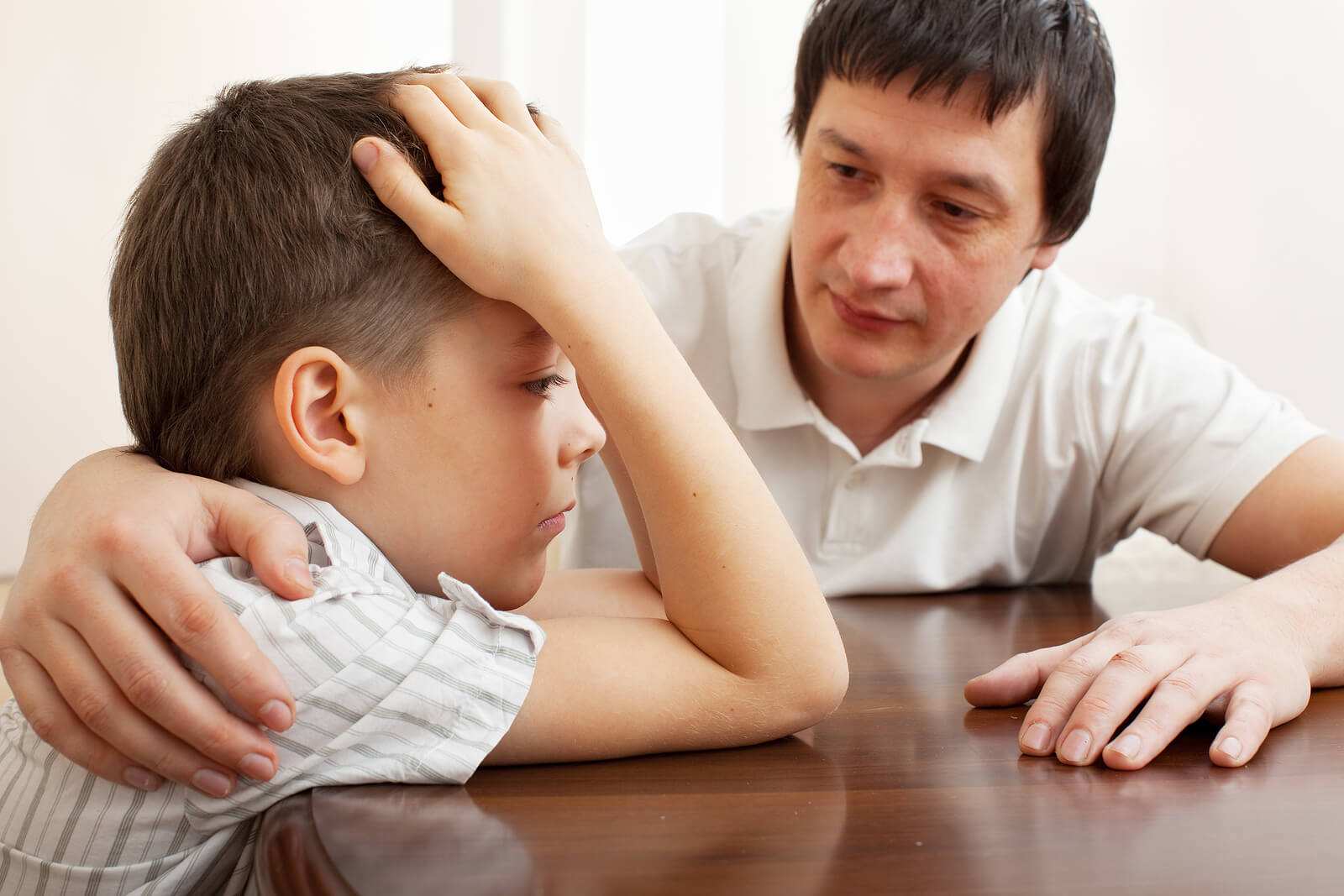Written by Ashlee Maruca, MS, LPC, ACS, DBT-LBC
Every child experiences mood swings, tantrums, or moments of sadness. It’s all part of growing up. But what happens when those emotions start to take over? When does “just a phase” turn into something more serious? As parents, caregivers, and teachers, recognizing the signs of emotional distress in children is critical — and sometimes lifesaving.
At DBT of South Jersey, we specialize in helping children and adolescents build the emotional skills they need to thrive. Emotional struggles can be complex and subtle, but with the right support and treatment — including evidence-based therapy like Dialectical Behavior Therapy (DBT) for children — we can help the children in our lives overcome these challenges and live healthier, more connected lives.
In this blog, we’ll explore how to recognize the signs of emotional distress, specifically in children, when to seek professional help, and how therapy for children in South Jersey can be a powerful tool for healing and resilience.

Understanding Emotional Distress in Children
Children, just like adults, experience a range of emotions — joy, sadness, anger, anxiety, and everything in between. But because their brains are still developing, they often struggle to understand, express, and regulate their feelings.
Emotional distress in children doesn’t always look the way we expect it to. Sometimes, it comes out as defiance or aggression. Other times, it’s withdrawal or somatic complaints like headaches and stomachaches. The signs can be easy to miss, especially if a child isn’t able or willing to communicate what they’re feeling.
Common Causes of Emotional Struggles in Children
- Family conflict or divorce
- Bullying or social rejection
- Academic stress or learning difficulties
- Loss of a loved one or pet
- Trauma or abuse
- Moving to a new home or school
- Identity exploration (gender, sexuality, cultural)
- Social media pressure
- Unmet mental health needs (anxiety, ADHD, depression)
Children are resilient, but they are not immune. Chronic stress, emotional neglect, or even everyday pressures can become overwhelming without the right tools or support.
Key Signs a Child May Be Struggling Emotionally
As a parent or caregiver, trust your instincts. If something feels “off” with your child, it’s worth paying close attention. Emotional distress often shows up in one or more of the following ways:
1. Withdrawal or Isolation
- Suddenly avoids friends or social activities
- No longer shows interest in hobbies they used to enjoy
- Hides in their room for long periods
- Avoids eye contact or conversations
Children who feel overwhelmed, anxious, or depressed may retreat inward — not because they don’t want help, but because they feel unsure how to ask for it.
2. Frequent or Intense Outbursts
- Explosive anger, yelling, or crying spells
- Meltdowns over small frustrations
- Aggression toward family members, peers, or objects
While some emotional expression is normal, frequent or intense emotional outbursts can signal underlying emotional dysregulation that requires therapeutic support.
3. Changes in Eating or Sleeping Habits
- Difficulty falling or staying asleep
- Nightmares or frequent fatigue
- Overeating or loss of appetite
- Complaints of physical pain without a medical cause
The mind and body are deeply connected. When a child is emotionally dysregulated, basic habits like sleep and nutrition often suffer as a result.
4. Regression in Behavior
- Bedwetting after years of dryness
- Using “baby talk”
- Clinginess or separation anxiety
- Fear of being alone or going to school
Regression is often a response to stress or trauma. The child is seeking safety by reverting to an earlier developmental stage.
5. Negative Self-Talk or Low Self-Esteem
- “I’m stupid.”
- “Nobody likes me.”
- “I can’t do anything right.”
- “I wish I weren’t here.”
Pay close attention to how your child talks about themselves. Chronic self-criticism or hopelessness may point to depression, anxiety, or suicidal thoughts.
6. Risky or Self-Destructive Behavior
- Harming themselves (scratching, cutting, hitting)
- Engaging in dangerous activities without fear of consequences
- Threats or talk of suicide
These are red flags that should never be ignored. Immediate intervention is necessary when a child expresses or acts on suicidal or self-harming thoughts.
7. Decline in Academic Performance
- Sudden drop in grades
- School refusal or frequent absences
- Complaints of being bored or overwhelmed
- Trouble focusing, following directions, or completing assignments
Emotional struggles often interfere with concentration and memory, making school feel impossible, unsafe, or daunting.

When to Seek Help: Trust the Signals
It’s normal to wonder, “Is this a phase or something more?” While not every tantrum requires therapy, there are signs that suggest it’s time to involve a professional:
Seek help if:
- Emotional symptoms persist for more than 2 weeks
- There’s a noticeable decline in daily functioning
- You notice self-harm, suicidal talk, or risky behaviors
- Your child talks about feeling sad, scared, angry, or alone most days
- School, friendships, or home life are significantly impacted
- You, as a caregiver, feel overwhelmed or unsure of how to help
Early intervention matters. Children do not “grow out” of emotional struggles — they learn how to manage them through guidance, skills, and support. Therapy for children provides a safe, structured space for that to happen.
How Therapy for Children Can Help a Struggling Child
At DBT of South Jersey, we use a combination of evidence-based therapies, with a focus on Dialectical Behavior Therapy (DBT), to help children and teens develop emotional resilience.
What is DBT?
DBT, or Dialectical Behavior Therapy, is a structured, skill-based therapy that helps individuals regulate emotions, tolerate distress, navigate relationships effectively, and stay present in the moment. Originally developed for adults, DBT has been adapted for children (DBT-C) and adolescents (DBT-A) with outstanding success.
DBT Teaches Children to:
- Identify and label emotions accurately
- Pause and breathe before reacting
- Express feelings in healthy ways
- Cope with stress and anxiety
- Solve problems without aggression
- Build stronger relationships with family and peers
Therapy for Children at DBT of South Jersey may include:
- Individual Therapy: One-on-one sessions where the child learns emotion regulation skills with a licensed therapist.
- Family Involvement: Parents and caregivers learn to support emotional growth, reinforce skills at home, and respond effectively to distress.
- Skills Training Groups: Small, structured groups where children and families learn DBT tools together.
- Collaboration with Schools and Providers: We coordinate care with teachers, pediatricians, and other professionals to ensure holistic support.
We believe therapy works best when it involves the whole system, not just the child. By supporting both children and their caregivers, we create lasting emotional change that extends beyond our office.
What Therapy For Children Looks Like at DBT of South Jersey
Our approach is child-friendly, trauma-informed, and rooted in compassion. From the first session, we work to build a safe, trusting relationship with your child and your family.
What to Expect:
- Initial Intake and Assessment: We gather a full picture of your child’s emotional, behavioral, and developmental history.
- Personalized Treatment Plan: Based on your child’s needs and symptoms, we craft a therapy plan using DBT and other evidence-based methods.
- Weekly Sessions: Your child will work one-on-one with a therapist and/or attend group skills training.
- Parent Coaching and Support: We help you develop effective strategies to manage emotional distress at home.
- Progress Monitoring: Regular updates ensure therapy is working and can be adjusted as needed.
Our goal isn’t just to reduce symptoms — it’s to equip your child with the skills they need for a lifetime of emotional wellness.
Skills for Supersensers
Our Skills for Supersensers program is designed to help you and your child thrive.
We have several therapists trained in DBT-C, and they are eager to help your child and your family live a more fulfilling life.
You’re Not Alone — And Neither Is Your Child
Watching your child struggle is heartbreaking. You might feel helpless, frustrated, or unsure where to turn. But you’re not alone — and neither is your child.
At DBT of South Jersey, we’re here to walk this path with you. Our team of child therapists is trained to recognize and treat emotional struggles at the root, offering real tools for healing and growth. We see each child not just as a diagnosis or a behavior problem, but as a whole person capable of learning, loving, and thriving.
Frequently Asked Questions
Q: At what age should a child start therapy?
We work with children as young as 6 years old using DBT-C and other age-appropriate methods. The earlier emotional struggles are addressed, the better.
Q: How long does therapy take to work?
Some children show improvement within weeks, but lasting change often requires several months of consistent therapy. DBT programs typically range from 6–12 months (though keep in mind every child is different).
Q: Do I need a diagnosis to start therapy?
No formal diagnosis is needed to begin. If your child is struggling and you’re concerned, that’s reason enough to seek support.
Q: What if my child refuses to go?
We work with you to build engagement gradually. Many kids are hesitant at first, but with patience and rapport, most come to feel safe and supported in therapy.
Get Help Today — Don’t Wait
If you’re seeing signs that your child is struggling emotionally, the best time to seek support is now. Left untreated, emotional distress can grow into more serious mental health issues, affect school performance, damage relationships, and impact your child’s future well-being.
But it doesn’t have to be that way. At DBT of South Jersey, we’re committed to helping children and families reconnect, heal, and thrive. Our therapists are here to listen without judgment and guide you toward the right next steps. Reach out and ask about our Skills for Supersensers program.
You don’t have to have all the answers. You just have to take the first step. Let DBT of South Jersey help your child find their way back to emotional wellness.

Find Hope and Healing with Therapy for Children in South Jersey
If your child is struggling with overwhelming emotions, we’re here to help. At DBT of South Jersey, our compassionate team specializes in guiding kids toward emotional wellness and resilience. Discover how therapy for children in South Jersey can give your family the support and tools you need—reach out today to take the first step. Follow these three simple steps to get started:
- Contact us to book a free consultation with our intake team
- Meet with one of our skilled child therapists
- Start seeing your child manage overwhelming emotions in positive ways!
Additional Services Offered at DBT of South Jersey
At DBT of South Jersey, we offer dedicated therapy for children to nurture their emotional health and development. With offices in Moorestown and Voorhees, our services also include support for ADHD, Autism, anxiety, trauma, OCD, as well as family and couples counseling and holistic care. Explore our blog for insightful guidance, practical tips, and helpful resources on therapy for children and teens.
Sources:
https://dbtofsouthjersey.com/children-teens/

